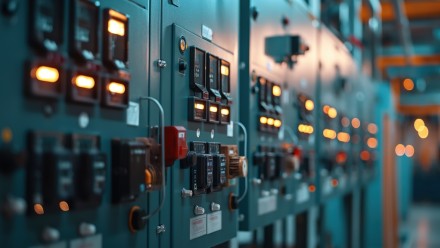Seminar: Engineering Challenges in Solar and Wind Powered Megawatt Water Electrolyzers
There are significant engineering challenges in powering megawatt-scale water electrolyzers with solar and wind energy.
Poor engineering can lead to far more carbon emissions than fossil fuel derived hydrogen. Today’s solar-powered megawatt electrolyzers are always done through AC power. The multiple power conversions for AC coupling incur significant costs and energy losses between 25% and 32%. DC coupled solar electrolyzers are hampered by the limited current capacity of DC power converters, with similar energy losses but even higher costs. In addition, all solar systems today employ power converters for maximum power point tracking. In hydrogen production however, it is the coulombs, not the joules, which matter more. A common issue with solar and wind energy is their intermittency, leading to low capacity factors and thus high costs for green hydrogen. In this talk, innovations will be introduced for power management in megawatt electrolyzer systems: 1) direct coupling between solar array and electrolyzer with load management to reduce energy losses to 4%; 2) maximum current point tracking in solar systems for green hydrogen production; and 3) solar/wind combined, hydro or nuclear backed systems to approach a 100% capacity factor.
Presenter: Dr. Meng Tao is a Professor in the School of Electrical, Computer & Energy Engineering at Arizona State University. His research focuses on terawatt solar technologies with the goal of pushing solar energy into a mainstream energy source by 2035. It covers a wide range of topics from materials and devices to systems and applications. Active research projects include recycling technologies for solar panels, solar systems for electrolytic hydrogen production and electric vehicle charging, and electrolytic purification for solar-grade silicon. For the last two decades, he has been promoting solar energy at the state, federal, and global levels including the initiation and launch of the US Photovoltaic Manufacturing Consortium in 2011 and the Global Hydrogen Production Technologies Center in 2023. Dr. Tao was awarded the Fulbright Distinguished Chair in Alternative Energy Technology. He was invited to the 2017 Nobel Award Ceremony in Stockholm.
More information:
- This is an in-person event which will be held at The Australian National University.
- Please click here for more information on getting to our events.
- By registering for this event you are also subscribing to the ANU Institute for Climate, Energy & Disaster Solutions mailing list. You can unsubscribe at any time by clicking on the unsubscribe button at the bottom of correspondence. More information is available in the event registration privacy notice.








